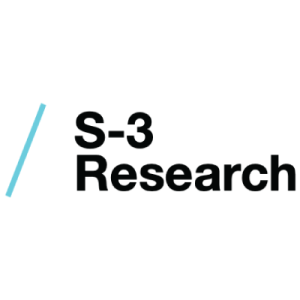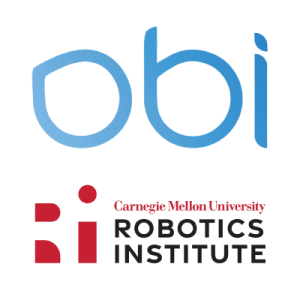- AI-assisted Prediction of Healthy Aging and Alzheimer’s Disease Progression
Chaitanya Gupta, ProbiusDX Inc., Steven Arnold, Massachusetts General Hospital. This project will use Probius QES, a novel technology that measure molecular vibrations in blood plasma samples, to identify and differentiate healthy aging vs Alzheimer’s Disease progression in a well characterized cohort of 1000+ individuals from MassGen.
- Using AI to Repurpose Small Molecules to Target Amyloid-tau Interactions in AD
Jeremy Linsley, Operant BioPharma. This project will use a proprietary robotics and artificial intelligence to identify targets and clinically-tested drugs that could be repurposed for Alzheimer’s disease by blocking the harmful interaction between Tau and Amyloid Precursor proteins.
- Behavioral Analytics is the New Medical Device
Rhoda Au, Boston University, Laura McIntosh, EmPowerYu. This project will use in-home multimodal sensors to detect changes in daily life activity patterns that indicate fluctuations in cognitive status.
- Leveraging Digital Cognitive Rhythms to Detect ADRD Risk in Family Caregivers
Raeanne C Moore, UCSD, Yeonsu Song, UCLA. This project will develop and pilot machine learning algorithms to passively monitor cognitive fluctuations among family caregivers of persons living with dementia by analyzing their smartphone typing patterns and speech.
- TRIALCHAT: Leveraging LLMs to enhance AD/ADRD clinical trial participation
Tim K. Mackey, S-3 Research LLC, Joshua Yang, California State University, Fullerton. This project will aim to develop TrialChat, an AI-powered chatbot and clinical trial navigator designed to increase participation in Alzheimer’s disease and related dementias (ADRD) clinical trials by providing tailored education, personalized trial matching, and recruitment support for older adults and caregivers.
- Leveraging AI for Just-in-Time Smartphone Solutions for Family Caregivers
Felipe A. Jain, Massachusetts General Hospital, Finale Doshi-Velez, Harvard University. Family caregivers of people living with dementia have high needs for skills training and methods to reduce stress. This project will study the feasibility of a just-in-time adaptive intervention delivered by smartphone to increase engagement and helpfulness of caregiver skills and relaxation content for caregivers.
- AI-Driven Early Detection of AD Risk Using Speech Features
Marziye Eshghi, MGH Institute of Health Professions. This project will leverage AI-driven analysis of remotely collected speech data to detect early signs of Alzheimer’s disease (AD) by linking speech acoustic and kinematic features to AD molecular pathologies.
- Measuring Heart Rate using Biomagnetism-based Wearable Devices
Longfei Shangguan, University of Pittsburgh. This project will aim to develop an innovative wearable system that leverages biomagnetism to deliver more accurate heart rate and respiration monitoring across diverse skin tones.
- Restoring Functional Eating in Late Stage Dementia
Jon Dekar, DESIN LLC, Zackory Erickson, CMU Robotics Institute. DESĪN LLC will enhance its existing Obi assistive feeding robot with AI-driven attention monitoring and redirection capabilities to support self-feeding in individuals with AD/ADRD who struggle with inattention. The project aims to demonstrate technical feasibility and clinical utility in long-term care settings, ultimately reducing caregiver burden and improving quality of life for affected individuals.
 Chaitanya Gupta, ProbiusDX Inc., Steven Arnold, Massachusetts General Hospital. This project will use Probius QES, a novel technology that measure molecular vibrations in blood plasma samples, to identify and differentiate healthy aging vs Alzheimer’s Disease progression in a well characterized cohort of 1000+ individuals from MassGen.
Chaitanya Gupta, ProbiusDX Inc., Steven Arnold, Massachusetts General Hospital. This project will use Probius QES, a novel technology that measure molecular vibrations in blood plasma samples, to identify and differentiate healthy aging vs Alzheimer’s Disease progression in a well characterized cohort of 1000+ individuals from MassGen. Jeremy Linsley, Operant BioPharma. This project will use a proprietary robotics and artificial intelligence to identify targets and clinically-tested drugs that could be repurposed for Alzheimer’s disease by blocking the harmful interaction between Tau and Amyloid Precursor proteins.
Jeremy Linsley, Operant BioPharma. This project will use a proprietary robotics and artificial intelligence to identify targets and clinically-tested drugs that could be repurposed for Alzheimer’s disease by blocking the harmful interaction between Tau and Amyloid Precursor proteins. Rhoda Au, Boston University, Laura McIntosh, EmPowerYu. This project will use in-home multimodal sensors to detect changes in daily life activity patterns that indicate fluctuations in cognitive status.
Rhoda Au, Boston University, Laura McIntosh, EmPowerYu. This project will use in-home multimodal sensors to detect changes in daily life activity patterns that indicate fluctuations in cognitive status. Raeanne C Moore, UCSD, Yeonsu Song, UCLA. This project will develop and pilot machine learning algorithms to passively monitor cognitive fluctuations among family caregivers of persons living with dementia by analyzing their smartphone typing patterns and speech.
Raeanne C Moore, UCSD, Yeonsu Song, UCLA. This project will develop and pilot machine learning algorithms to passively monitor cognitive fluctuations among family caregivers of persons living with dementia by analyzing their smartphone typing patterns and speech. Tim K. Mackey, S-3 Research LLC, Joshua Yang, California State University, Fullerton. This project will aim to develop TrialChat, an AI-powered chatbot and clinical trial navigator designed to increase participation in Alzheimer’s disease and related dementias (ADRD) clinical trials by providing tailored education, personalized trial matching, and recruitment support for older adults and caregivers.
Tim K. Mackey, S-3 Research LLC, Joshua Yang, California State University, Fullerton. This project will aim to develop TrialChat, an AI-powered chatbot and clinical trial navigator designed to increase participation in Alzheimer’s disease and related dementias (ADRD) clinical trials by providing tailored education, personalized trial matching, and recruitment support for older adults and caregivers. Felipe A. Jain, Massachusetts General Hospital, Finale Doshi-Velez, Harvard University. Family caregivers of people living with dementia have high needs for skills training and methods to reduce stress. This project will study the feasibility of a just-in-time adaptive intervention delivered by smartphone to increase engagement and helpfulness of caregiver skills and relaxation content for caregivers.
Felipe A. Jain, Massachusetts General Hospital, Finale Doshi-Velez, Harvard University. Family caregivers of people living with dementia have high needs for skills training and methods to reduce stress. This project will study the feasibility of a just-in-time adaptive intervention delivered by smartphone to increase engagement and helpfulness of caregiver skills and relaxation content for caregivers. Marziye Eshghi, MGH Institute of Health Professions. This project will leverage AI-driven analysis of remotely collected speech data to detect early signs of Alzheimer’s disease (AD) by linking speech acoustic and kinematic features to AD molecular pathologies.
Marziye Eshghi, MGH Institute of Health Professions. This project will leverage AI-driven analysis of remotely collected speech data to detect early signs of Alzheimer’s disease (AD) by linking speech acoustic and kinematic features to AD molecular pathologies. Longfei Shangguan, University of Pittsburgh. This project will aim to develop an innovative wearable system that leverages biomagnetism to deliver more accurate heart rate and respiration monitoring across diverse skin tones.
Longfei Shangguan, University of Pittsburgh. This project will aim to develop an innovative wearable system that leverages biomagnetism to deliver more accurate heart rate and respiration monitoring across diverse skin tones. Jon Dekar, DESIN LLC, Zackory Erickson, CMU Robotics Institute. DESĪN LLC will enhance its existing Obi assistive feeding robot with AI-driven attention monitoring and redirection capabilities to support self-feeding in individuals with AD/ADRD who struggle with inattention. The project aims to demonstrate technical feasibility and clinical utility in long-term care settings, ultimately reducing caregiver burden and improving quality of life for affected individuals.
Jon Dekar, DESIN LLC, Zackory Erickson, CMU Robotics Institute. DESĪN LLC will enhance its existing Obi assistive feeding robot with AI-driven attention monitoring and redirection capabilities to support self-feeding in individuals with AD/ADRD who struggle with inattention. The project aims to demonstrate technical feasibility and clinical utility in long-term care settings, ultimately reducing caregiver burden and improving quality of life for affected individuals.